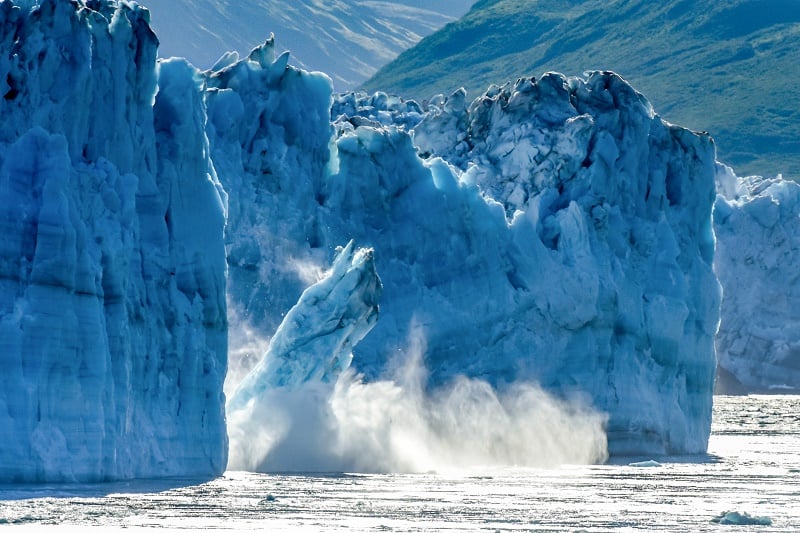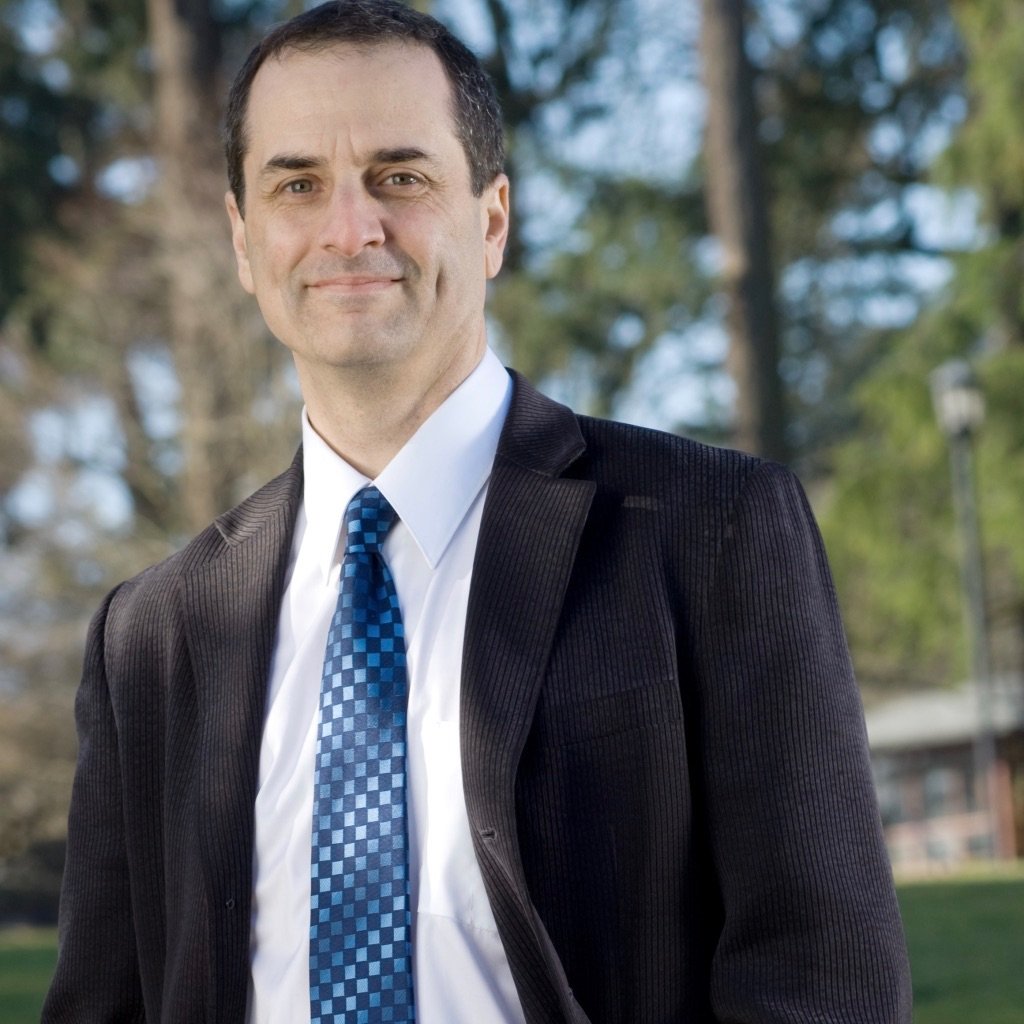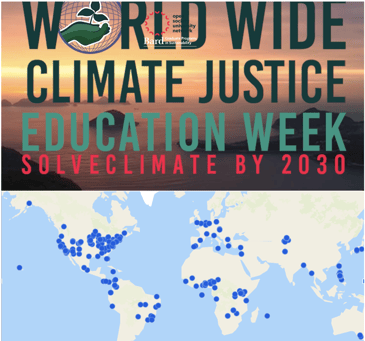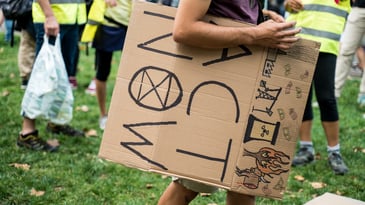Is It Too Late to Stop Climate Change?

“There may come a time, sooner than any of us likes to think, when the systems of industrial agriculture and global trade break down and homeless people outnumber people with homes.” Local farming and strong communities “will be essential in a crisis and in whatever society survives it.” -- Jonathan Franzen
The last few years have seen a global uprising led by young people, demanding the grown-ups act urgently and ambitiously to save their future. At the same time, as politics across the planet seem consumed with social-media-driven tribalism, there has been rising climate despair among many folks who are awake to the climate crisis. Indeed, recently some of the grown-ups are asking, "Is it too late to stop climate change?"
Some are coming to the conclusion that we actually can't stabilize the climate. The best we can do, they say, is build more resilient communities to withstand the coming climate-induced socio-economic breakdown. The novelist Jonathan Franzen recently made this case in The New Yorker. Franzen speaks for a growing group of people worn down by the far-reaching damage we are doing to our world, who see climate change in apocalyptic terms, a phenomenon very likely to end human civilization as we know it.
So do we need to look our children in the eyes and say, sorry, but you need to be realistic? That a transition to a 100% clean energy economy is just not going to happen fast enough? That the global economy will soon collapse and billions of people will be homeless? Tell them, forget aggressive measures to cut emissions like the Green New Deal, focus instead on social adaptation?
No.
Climate despair is gaining dangerous traction among people grappling with the increasing severity of current and future global warming. But this is precisely the wrong historical moment to abandon belief in a finer future. Franzen and others are wrong on the science, wrong on the impacts of two-degree warming, and wrong on what it will take to stabilize the climate. Climate solutions are now cheaper than fossil fuels—and getting cheaper. We can quickly rewire the world with clean energy. Doing so soon will profoundly enrich the lives not only of our children and grandchildren but indeed, every human being and living creature who will walk the face of the planet, from now until the end of time.
Doing so soon also means every day, all of us working hard to change the rules (climate policy), to change minds (environmental education), and to change the game (build regenerative, sustainable businesses). But why do this work if, in fact, it is already too late? Climate doomsterism creates paralysis. So it is not only wrong, but profoundly dangerous, an increasing obstacle to the climate action we desperately need.
Is it too late to stop climate change?
NASA scientist Jim Hansen introduced the “too late” language about climate change in 2005, arguing that “We have to stabilize emissions of carbon dioxide within a decade, or temperatures will warm by more than one degree [C]... we don’t have much time left”.” We did not stabilize emissions, and his warming prediction is now a reality.
In 2018, the IPCC set another guidepost. Holding temperatures to 1.5 degrees Celsius will require a clean energy transition to be far advanced by 2030. And the 2022 IPCC report made it clear that to keep temperatures to 2 degrees Celsius we have until 2050 to largely decarbonize the global economy. When scientists say “too late” on climate change, what they mean simply is that we have foreclosed any likelihood of staying within a particular global warming temperature target.
If governments take no serious action at all in the coming few decades, then we are likely to wind up at between 3 and 5 degrees Celsius of heating. To put that last number in perspective, during the last Ice Age, when my hometown in New York state was covered by hundreds of meters of ice, the world was only 5 degrees Celsius colder than it is now. Unchecked we are on track for a warming that could easily hit Ice Age magnitude, only in the opposite direction, within the lifetime of my students.
So we do have a choice. Our action, or our inaction, will determine how much the world heats up. As detailed below, it is absolutely not too late, and will not be for decades. We have to fight and win a war now for clean energy, acting aggressively to hold global warming to the low end. A world that is 2 degrees hotter will be much, much better than one that is 3, 4, or 5. Every tenth of a degree will matter for our kids and grandkids.
No runaway greenhouse at 2 degrees
So how can people possibly say we should admit defeat? Franzen's main argument is that this possibility of holding future heating to a range, from 2 to 5 degrees, does not really exist. Instead, we are already headed across a tipping point:
“Our atmosphere and oceans can absorb only so much heat before climate change, intensified by various feedback loops, spins completely out of control. The consensus among scientists and policy-makers is that we’ll pass this point of no return if the global mean temperature rises by more than two degrees Celsius (maybe a little more, but also maybe a little less)… In the long run, it probably makes no difference how badly we overshoot two degrees; once the point of no return is passed, the world will become self-transforming.”
Here are the key lines: “The consensus among scientists and policymakers” is that above 2 degrees Celsius or a little more, the climate “spins completely out of control”. This is just wrong, and Franzen provides no evidence to back up this extraordinary claim. Yes, positive feedback loops like widespread, fire-driven deforestation or massive methane releases could collectively drive the planetary temperature upwards in an ever less controllable spiral. These are possibilities, risks we need to reduce. Indeed, the risks get higher the more global warming pollution we emit, yet another critical reason to aggressively reduce it now. But I know of no scientific source—let alone a “consensus”—maintaining that such a “self-transforming” runaway greenhouse scenario is inevitable or that it will be triggered at close to 2 degrees Celsius. Without this assertion, Franzen’s “too late” argument falls apart. Four degrees will be far worse than three, which will be far worse than two. So we have to fight like hell today for two or better.
Unless, perhaps, there is some other way that it could be too late. Increasingly, people I talk with are fearful that 2 degrees Celsius alone would be enough to trigger global societal collapse. Could this really happen? Let’s dig into this question in the next post.






